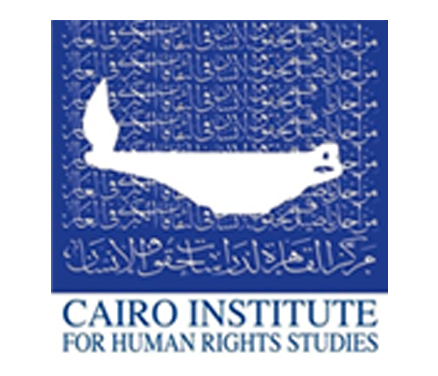At least 19 civilians were executed within the span of a week, pursuant to sentences given by military courts that do not meet the minimum requirements for fair trials; an increasing number of militant attacks on civilians and military personnel were also recorded during this time
The signatory organizations condemn the execution of four people today, Tuesday January 2, who were tried in case 22/2015 before Tanta Military Criminal Court, in the case known as “Kafr al-Sheikh Stadium”case. The signatories state that today’s executions raise the number of people executed by the Egyptian government within just one week to 19 people – an unprecedented death toll in Egypt’s modern history.
The signatories also fear that today’s executions come as a political response, following very recent armed attacks on civilians and military personnel on December 28 and 29, 2017. On December 28, Lieutenant Colonel Ahmed al-Kafrawy, the military commander of Bir al-Abd, was killed in an attack by gunmen on a Hummer using an IED. The attack took place in the Sebeika area west of Arish, North Sinai. On the same day, an Armed Forces conscript was killed and two others were injured in an attack on Battalion 103 in central Sinai. On December 29, an attack on the church of Mar Mina in the district of Helwan left eight Christian civilians and one policeman dead.
The signatory organizations have repeatedly demanded the government to suspend the use of the death penalty and stop the execution of defendants who were handed final death sentences. The signatories emphasize the importance of the statement by Ben Emmerson, Special Rapporteur on the promotion and protection of human rights and fundamental freedoms while countering terrorism. Emmerson said,“Resorting to this type of punishment to curb terrorism is illegal as much as it is futile. There is a lack of persuasive evidence that the death penalty could contribute more than any other punishment to eradicating terrorism. The death penalty is also an ineffective deterrent because terrorists who are executed may just gain in prestige as may their cause.”
The peoplewho were executed today in the Kafr al-Sheikh Stadium case are:
Lotfy Ibrahim Khalil, Ahmed Abdel Moneim Salama, Ahmed Abdel Hady al-Seheimy and Sameh Abdallah Youssef.
The trial of these four individuals involved several notable violations, aside from being conducted by a military court. Military trials in Egypt are often conducted in haste, and, as such, may seriously affect the verification of facts, compromise any due process, and deprive defendants of the right to adequate time to prepare and present their defense — all factors that may adversely affect the final outcomes of such trials. In cases like this, once the verdict is issued, it is submitted to the defense minister for approval. If the defendants are sentenced to death, the case files are submitted for review by the Supreme Military Court of Appeals.
The Egyptian government had agreed in principle to a moratorium on capital punishment in September, as long as it follows a public debate on the matter. his continued execution of death sentences violates the proposed amendments that Egypt submitted to the 36th session of the UN Human Rights Council.
It is noteworthy that today’s executions are not the first time the Egyptian government has employed the death penalty for political purposes. On May 17, 2015, six individuals who were tried in case 43/2014 before the North Cairo Military Criminal Court — in a case known as the “Arab Sharkas Cell” case — were executed, one day after the assassination of three judges in Arish. On December 26, 2017, 15 defendants who were tried in case 411/2013 before the Ismailia Court of First Degree — known as the “Officer Tracking Cell ” case — were executed. Their sentences were carried out following an attack that targeted the defense and interior ministers on December 19, 2017.
The signatory organizations assert that revenge is not what Egyptian society needs. Rather, efforts made to ascertain the truth about violent and armed attacks are needed, to identify any state bodies responsible for negligence or failure, enact accountability such that similar violations do not occur in the future, and ensure that justice is brought by civilian not military courts.
Signatory organizations:
- Adalah Center for Rights and Freedoms
- Against the Death Penalty
- Al Nadeem Center for the Rehabilitation of Victims of Violence and Torture
- Arabic Network for Human Rights Information (ANHRI)
- Association for Freedom of Thought and Expression
- Cairo Institute for Human Rights Studies
- Centre for Egyptian Women Legal Assistance
- Egyptian Commission for Rights and Freedoms
- Egyptian Center for Economic and Social Rights
- Egyptian Initiative for Personal Rights (EIPR)
- Hisham Mubarak Law Center
- No to Military Trials for Civilians
Share this Post

